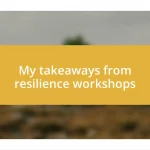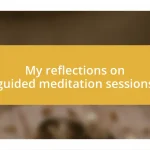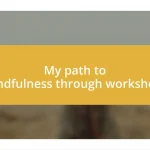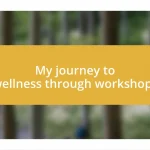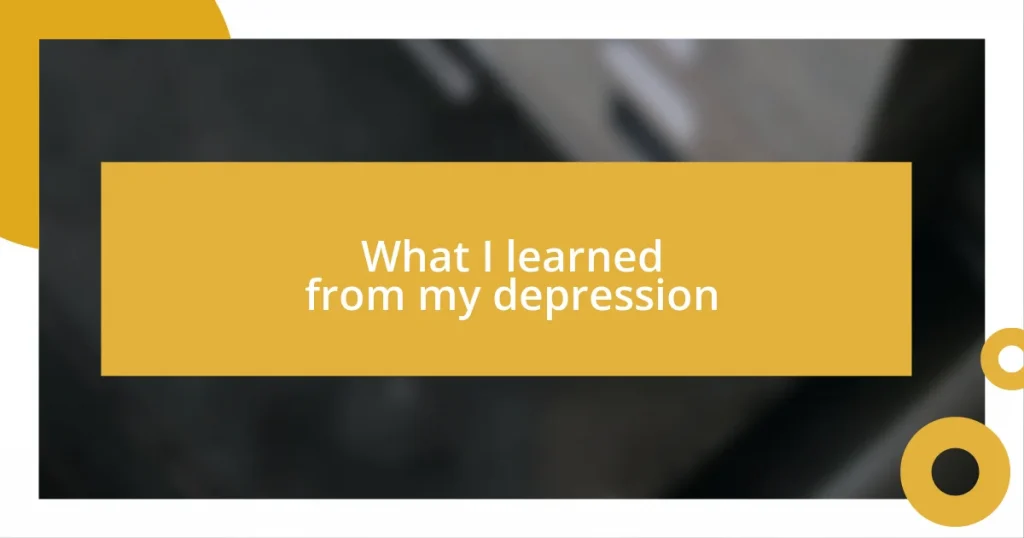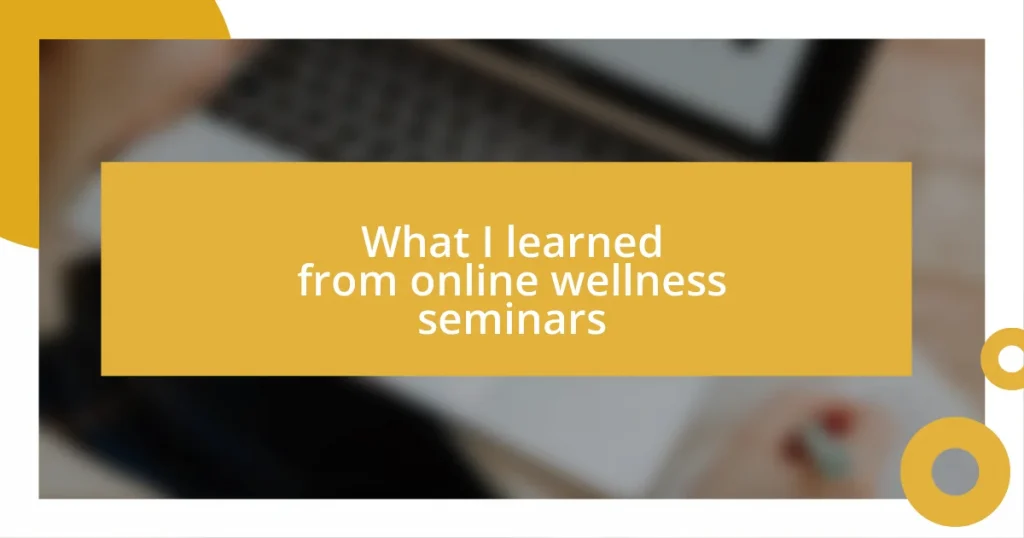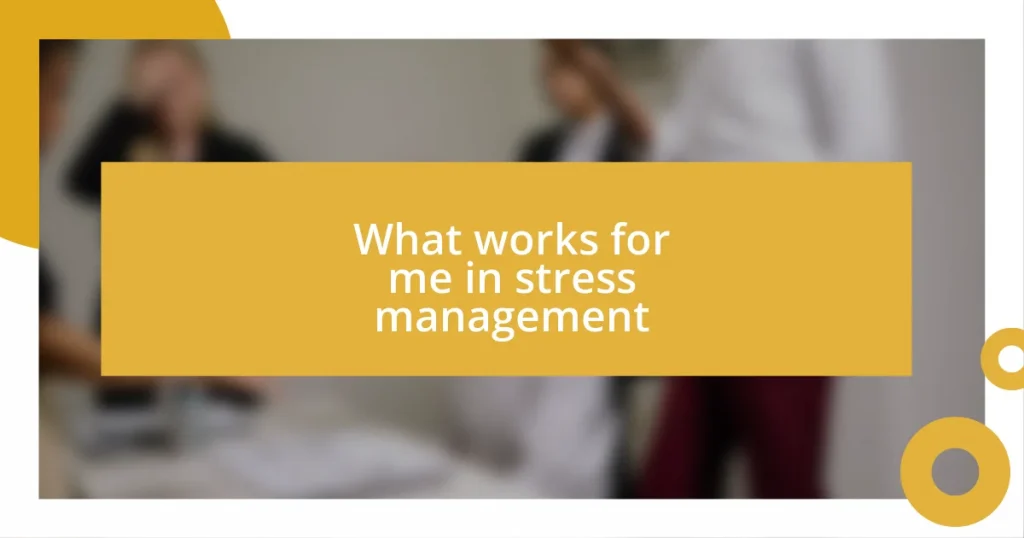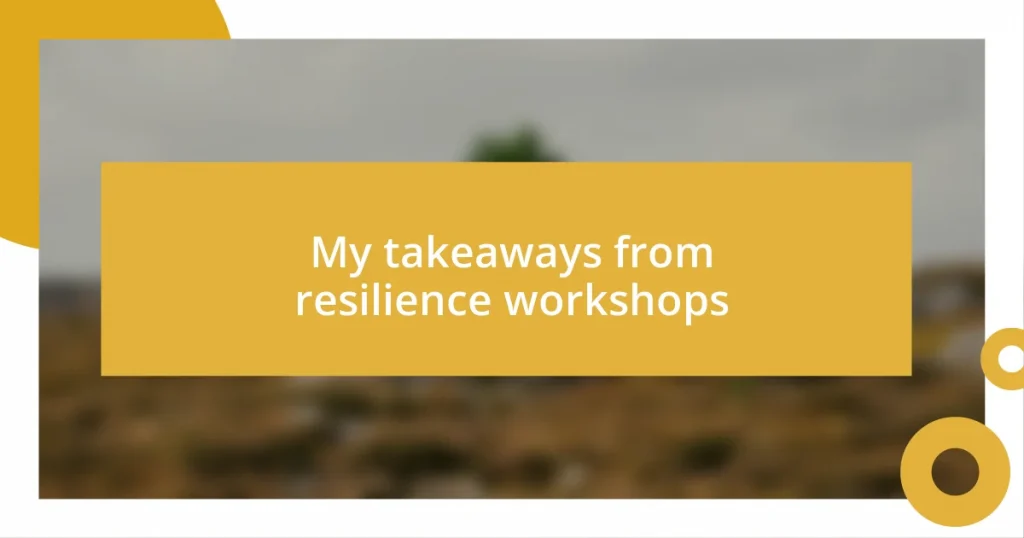Key takeaways:
- Acknowledging and embracing feelings is crucial for self-understanding and growth during the depression journey.
- Recognizing symptoms of depression, such as persistent sadness and fatigue, is the first step towards seeking help.
- Building a supportive network and practicing self-compassion are vital for healing and navigating the challenges of depression.
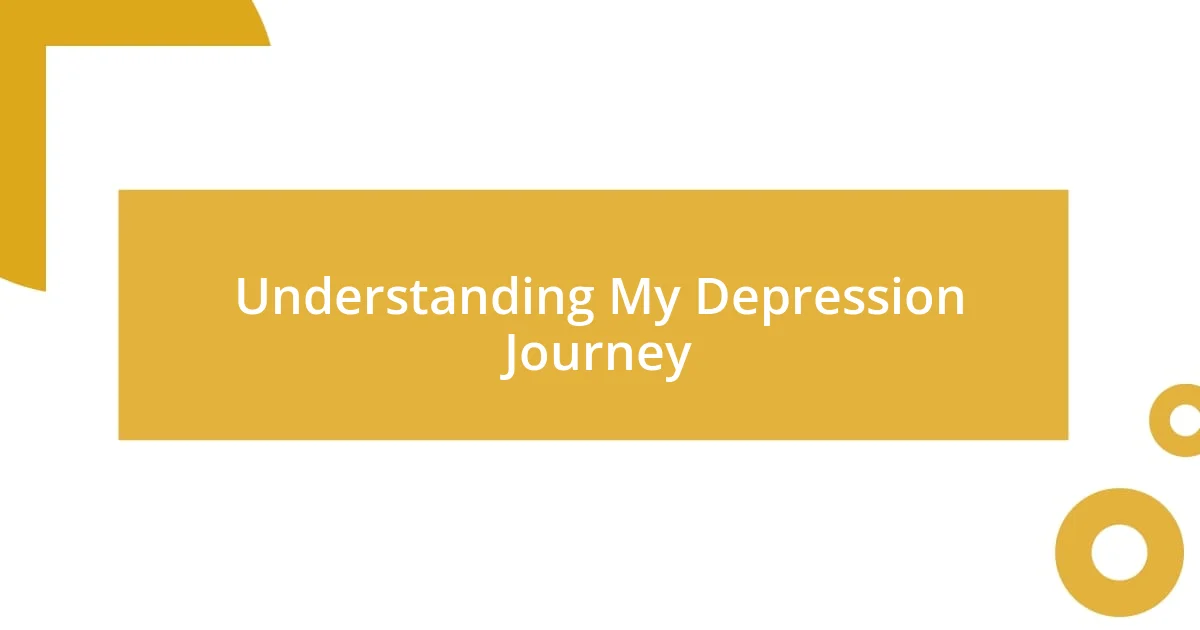
Understanding My Depression Journey
Understanding my depression journey has been a complex and often confusing experience. I still remember the days when getting out of bed felt like climbing a mountain. It made me question, “Why is it so hard to just feel okay?” That internal struggle was something no one else seemed to understand.
As I navigated this path, I discovered that each low point came with its own set of lessons. I vividly recall sitting on my bedroom floor, surrounded by a sea of crumpled tissues, when a thought struck me: “What if this pain has a purpose?” That moment shifted my perspective; it turned my suffering into a catalyst for growth and self-discovery.
Reflecting on my journey, I realize that acknowledging my feelings was paramount. Embracing those tough emotions instead of pushing them away allowed me to understand myself deeply. Have you ever felt the weight of an emotion, only to find that sitting with it leads to greater clarity? That’s precisely what happened for me—I learned that sometimes, feeling the darkness can illuminate the path forward.
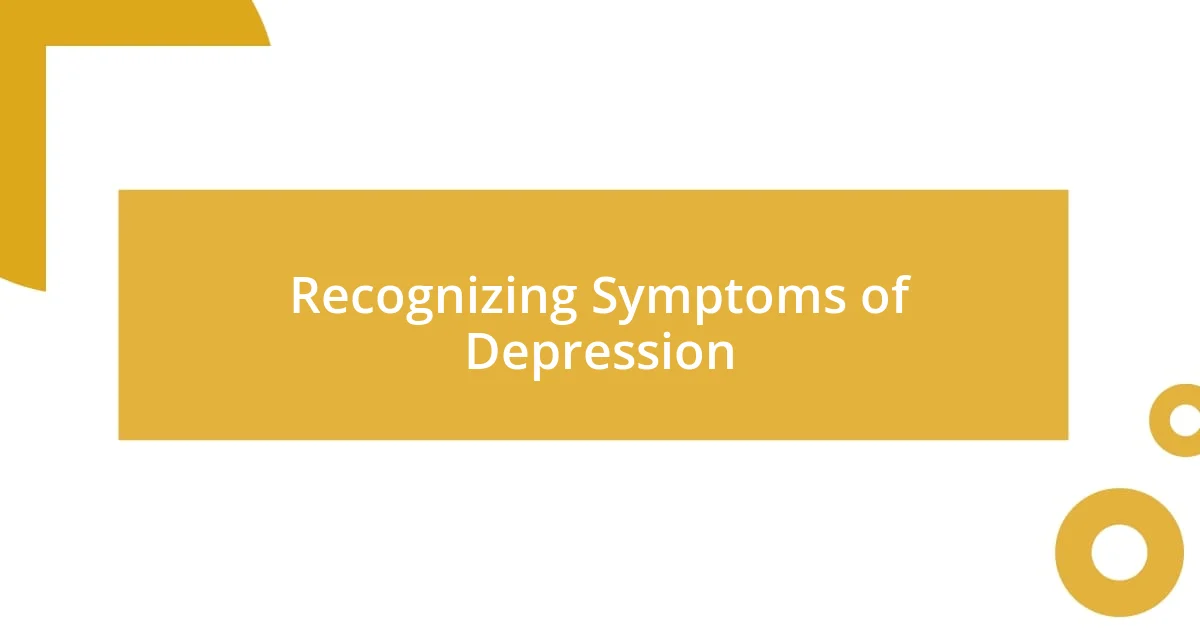
Recognizing Symptoms of Depression
One of the first steps in understanding depression is recognizing its symptoms, which can sometimes be subtle. I remember dismissing my constant fatigue as just a phase of life, thinking everyone felt tired from time to time. But when my lack of energy persisted for weeks, it hit me that this wasn’t normal; it was a sign that something deeper was at play. Acknowledging these symptoms can bring clarity and urgency to seeking help.
Here are some common symptoms to watch for:
– Persistent sadness or low mood
– Loss of interest in activities once enjoyed
– Changes in sleep patterns, such as insomnia or oversleeping
– Difficulty concentrating or making decisions
– Emotional numbness or feeling detached from reality
Understanding these signs can be the key to recognizing what you or a loved one might be going through. The earlier we accept these feelings as valid, the easier it becomes to take the next steps needed for healing.
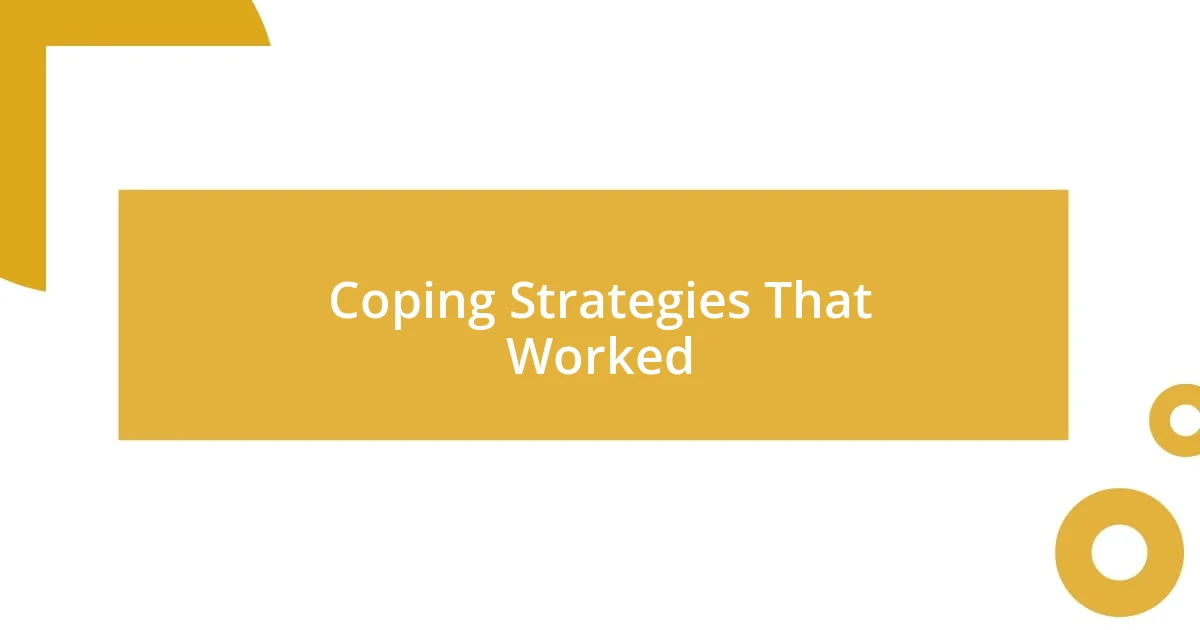
Coping Strategies That Worked
Everyone’s experience with depression is unique, so it’s essential to find coping strategies that resonate personally. For me, journaling became a transformative tool. I can still picture myself writing late at night, pen in hand, pouring out my thoughts into the pages. This practice allowed me to understand my feelings better and track patterns in my mood. Have you ever tried reflecting through writing? It might surprise you how much clarity it can bring.
Mindfulness was another effective strategy that helped soothe my mind. I remember those moments when anxiety bubbled up, and simply taking deep breaths anchored me in the present moment. Engaging in mindfulness exercises calmed my racing thoughts, reminding me that it’s okay to pause. Have you practiced being in the now? It’s a game changer when life feels overwhelming.
Physical activity also played a significant role in my coping mechanisms. I was hesitant at first, thinking I didn’t have the energy to exercise. Yet, I decided to try a short walk one sunny afternoon. Surprisingly, that simple action lifted my spirits and made me feel more alive. It’s incredible how movement can influence emotions, isn’t it?
| Coping Strategy | My Experience |
|---|---|
| Journaling | Writing out my thoughts provided clarity and emotional release. |
| Mindfulness | Deep breathing exercises helped center my thoughts during anxious moments. |
| Physical Activity | Short walks revitalized my mood, making me feel more connected to my body. |
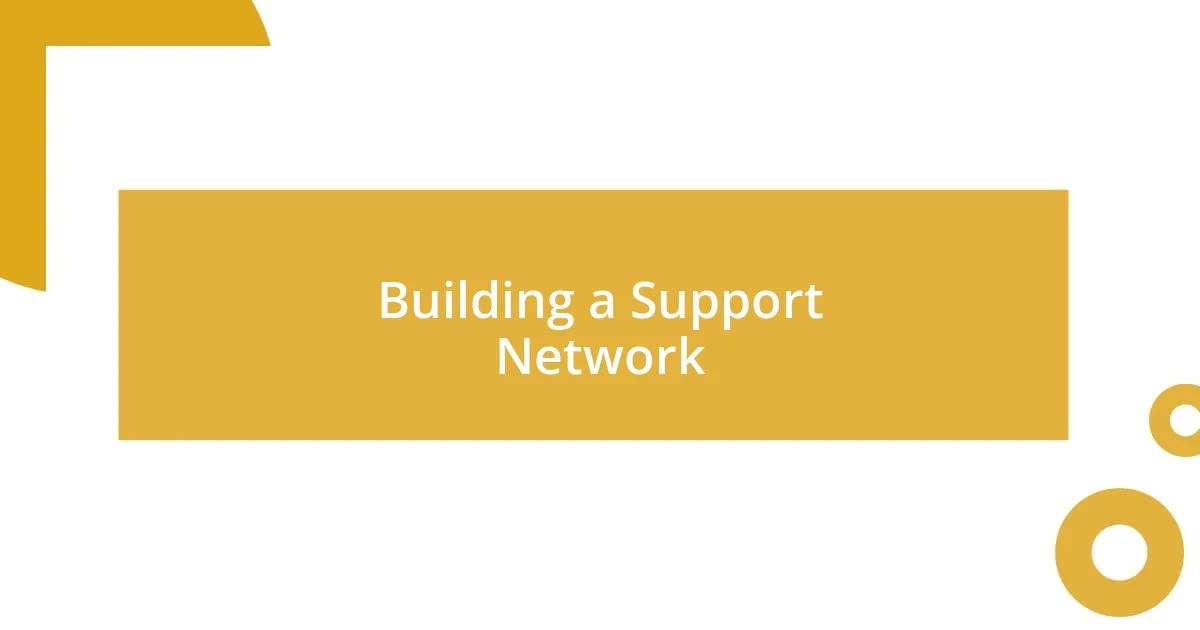
Building a Support Network
Building a support network is one of the most essential steps in navigating the journey through depression. I learned firsthand how valuable it is to connect with people who genuinely understand, empathize, and can offer support. I remember reaching out to an old friend after feeling particularly low. To my surprise, she opened up about her own experiences with mental health struggles, and in that moment, I felt less alone. Have you experienced that comforting realization when someone shares your pain?
Creating a network doesn’t just happen naturally; it requires intention. I started by surrounding myself with positive influences, folks who uplift instead of drain. During one of our chats, I shared my frustrations about feeling isolated, which prompted my friend to organize regular meetups. The simple act of being around uplifting people changed my perspective significantly. Can you think of someone in your life who could offer that kind of support?
It’s also important to remember that support can come from various sources, not just friends. I turned to online communities focused on mental health, where people shared their stories and coping strategies. I vividly recall finding a forum dedicated to my specific struggles, where I could read others’ insights and even engage in conversations. The sense of belonging I found there was eye-opening. Aren’t we all just looking for spaces where we feel accepted and understood?
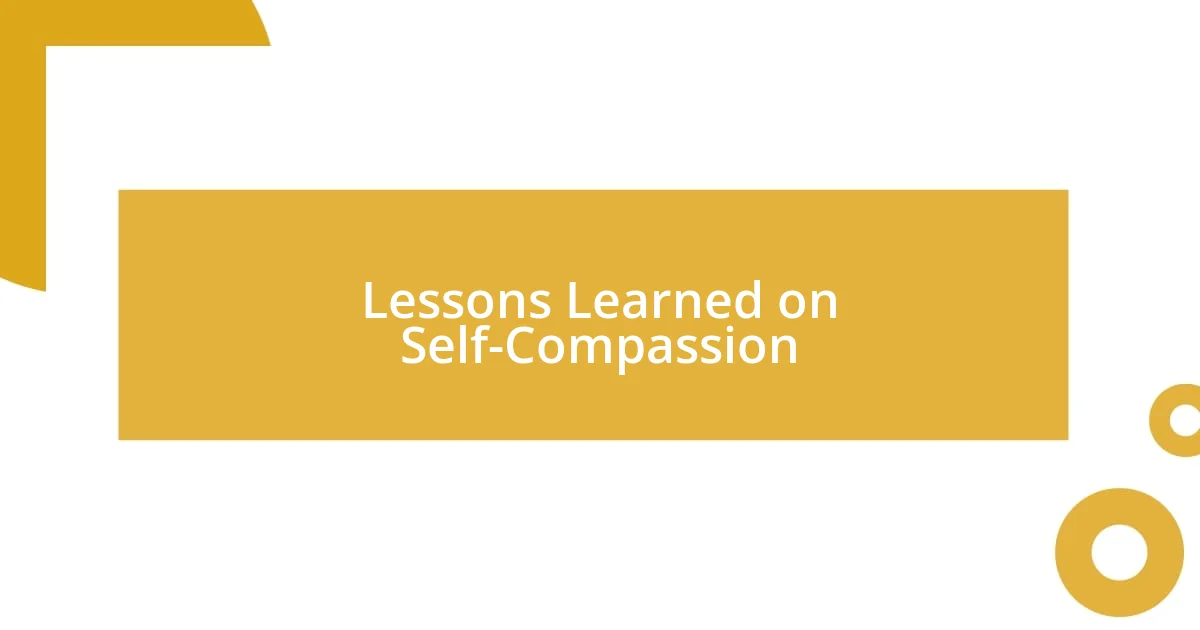
Lessons Learned on Self-Compassion
Self-compassion emerged as a fundamental pillar in my healing journey. I recall a moment of despair when I was so critical of myself for feeling down. Instead of berating myself, I chose to speak to myself as I would to a dear friend. That shift in language was profound; it was like wrapping myself in a warm blanket of acceptance. Have you ever noticed how your self-talk can dramatically affect your mood?
There were days when I felt unworthy of kindness, both from myself and others. In those moments, I learned to embrace my imperfections. I started practicing small acts of self-care—like treating myself to my favorite comfort food or relaxing with a good book, even when it felt indulgent. I realized that self-compassion is not about dismissing my struggles; it’s recognizing that everyone has flaws and it’s perfectly human to experience pain. Don’t you think we all deserve a little leniency?
One of my most enlightening moments came when I began journaling specifically about times I showed myself compassion. I wrote about the days I allowed myself to rest without guilt and times I forgave myself for slipping up. Reflecting on these moments helped me see that self-compassion isn’t a one-time act but a continuous practice. It made me wonder: how often do we truly permit ourselves to be gentle and forgiving? I encourage you to explore this for yourself; after all, there’s strength in vulnerability.


